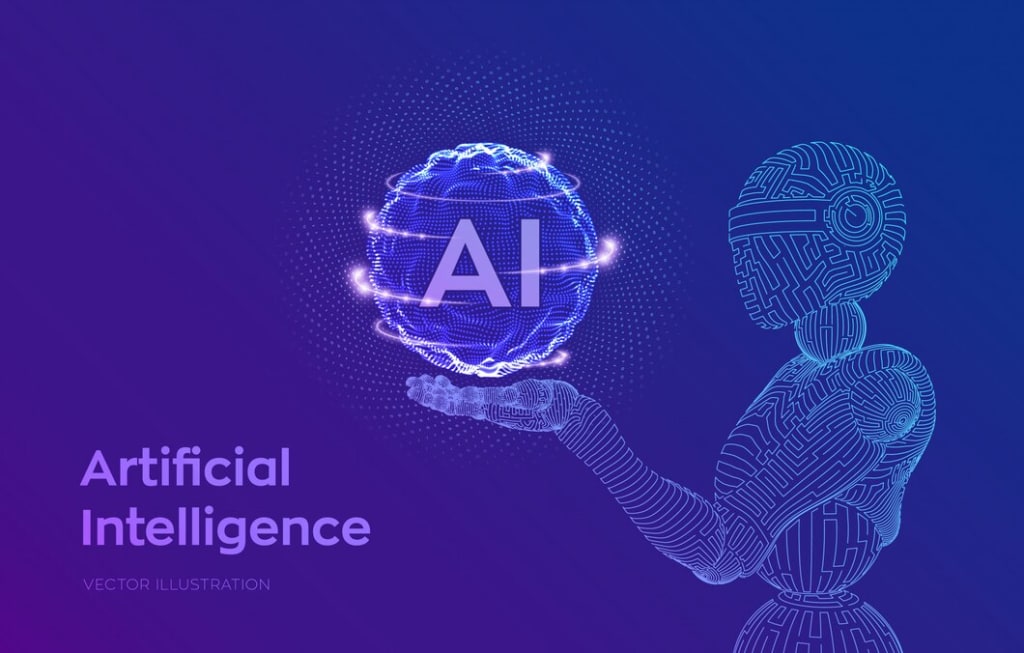The Role of Artificial Intelligence in Higher Education
AI in UK Higher Education

Artificial intelligence (AI) is rapidly transforming various sectors, and education is no exception. As AI continues to integrate into our daily lives, its influence on higher education is becoming increasingly significant. This article delves into the multifaceted role of AI in higher education, highlighting its benefits, challenges, and future prospects.
Understanding Artificial Intelligence
Artificial intelligence (AI) is rapidly transforming various sectors, and education is no exception. As AI continues to integrate into our daily lives, its influence on higher education is becoming increasingly significant. This article delves into the multifaceted role of AI in higher education, highlighting its benefits, challenges, and future prospects.
Native Assignment Help offers a free thesis statement generator for students in the UK. This easy-to-use tool assists in crafting precise and persuasive thesis statements, providing a strong starting point for academic papers. Designed to simplify the writing process, it ensures students can efficiently develop clear and focused arguments, enhancing the quality of their work.
Understanding Artificial Intelligence
Definition of AI
AI refers to the simulation of human intelligence processes by machines, especially computer systems. These processes include learning (acquiring information and rules for using the information), reasoning (using rules to reach approximate or definite conclusions), and self-correction.
Types of AI
AI can be broadly categorized into narrow AI, which is designed for a specific task, and general AI, which has the capability to perform any intellectual task that a human can do. In education, narrow AI is predominantly used to enhance learning experiences and administrative efficiency.
Evolution of AI in Education
The journey of AI in education began with simple computer-aided instruction and has evolved into sophisticated systems capable of providing personalized learning experiences, automating administrative tasks, and supporting research.
Historical Context of AI in Education
Early Use of Technology in Education
Technology in education started with basic computer-based training programs in the 1960s. These early systems were limited in functionality but laid the groundwork for future advancements.
Milestones in AI Development
Significant milestones include the development of intelligent tutoring systems in the 1980s, the advent of adaptive learning technologies in the 2000s, and the rise of AI-powered administrative tools in recent years.
Transition to Modern AI Applications
Today, AI in education encompasses a broad range of applications, from personalized learning platforms to advanced data analytics, making education more accessible and efficient.
AI-Powered Learning Tools
Adaptive Learning Platforms
Adaptive learning platforms use AI algorithms to adjust the content and pace of learning based on individual student performance. This personalized approach helps students grasp concepts more effectively and at their own pace.
Intelligent Tutoring Systems
Intelligent tutoring systems (ITS) provide one-on-one instruction to students, offering personalized feedback and guidance. These systems simulate the role of a human tutor, enhancing the learning experience.
Virtual Teaching Assistants
Virtual teaching assistants, powered by AI, assist educators by handling routine tasks such as grading, answering common student queries, and providing resources, allowing teachers to focus on more complex instructional activities.
Enhancing Administrative Efficiency
Automated Administrative Tasks
AI streamlines administrative tasks such as enrollment, scheduling, and record-keeping, reducing the workload on staff and improving efficiency.
Predictive Analytics for Student Success
AI-driven predictive analytics identify students at risk of falling behind and provide insights into how institutions can support them. This proactive approach helps improve student retention and success rates.
AI in Resource Management
AI optimizes resource management by analyzing data to predict future needs, allocate resources effectively, and manage facilities more efficiently.
Personalized Learning Experiences
Customizing Learning Paths
AI customizes learning paths based on each student's strengths, weaknesses, and learning preferences, providing a more tailored educational experience.
Real-Time Feedback and Assessment
AI systems provide real-time feedback on assignments and assessments, helping students understand their progress and areas for improvement instantly.
Student Engagement and Motivation
AI tools enhance student engagement by making learning more interactive and personalized, which can increase motivation and overall academic performance.
Improving Accessibility and Inclusion
AI for Special Education
AI supports special education by offering personalized learning tools and resources tailored to the needs of students with disabilities.
Language Translation and Support
AI-powered language translation tools break down language barriers, making education more accessible to non-native speakers.
Bridging Educational Gaps
AI helps bridge educational gaps by providing resources and support to underrepresented and disadvantaged groups, ensuring a more inclusive learning environment.
Challenges and Ethical Considerations
Data Privacy and Security
The use of AI in education raises concerns about data privacy and security. Institutions must ensure that student data is protected and used ethically
Bias in AI Algorithms
AI algorithms can inadvertently perpetuate biases present in their training data. It's crucial to develop and implement AI systems that promote fairness and equity in education.
Ethical Use of AI in Education
Ethical considerations include ensuring transparency in AI usage, maintaining human oversight, and addressing the potential for AI to replace human jobs in education.
Case Studies of AI in Higher Education
Leading Universities Using AI
Several leading universities have successfully integrated AI into their educational frameworks. Institutions like MIT, Stanford, and Georgia Tech are at the forefront, using AI to enhance learning and administrative processes.
Successful AI Implementations
Examples of successful AI implementations include AI-driven tutoring systems, predictive analytics for student success, and virtual classrooms that offer interactive learning experiences.
Lessons Learned from AI Adoption
Institutions that have adopted AI share lessons learned, emphasizing the importance of stakeholder involvement, continuous evaluation, and addressing ethical considerations.
Future Trends in AI and Education
Emerging AI Technologies
Emerging AI technologies such as natural language processing, machine learning, and virtual reality are set to further revolutionize higher education.
Predictions for AI in Education
Experts predict that AI will become increasingly integral to education, offering more personalized, efficient, and inclusive learning experiences.
The Role of Educators in an AI-Driven World
While AI will transform many aspects of education, the role of educators will remain crucial. Teachers will need to adapt to new technologies and focus on areas where human interaction is irreplaceable.
Student Perspectives on AI in Education
Benefits for Students
Students benefit from AI through personalized learning experiences, instant feedback, and improved access to educational resources.
Concerns and Reservations
Despite the benefits, students have concerns about data privacy, the potential for decreased human interaction, and the fairness of AI systems.
Student Testimonials
Students who have experienced AI-driven education share positive feedback, highlighting the convenience and enhanced learning outcomes provided by AI tools.
Faculty and Staff Adaptation to AI
Training and Development
Faculty and staff require ongoing training and development to effectively integrate AI into their teaching and administrative practices.
Changing Roles of Educators
The role of educators is evolving, with AI handling routine tasks and teachers focusing more on mentorship, critical thinking, and creativity.
Collaboration Between Humans and AI
Successful integration of AI in education involves collaboration between humans and machines, leveraging the strengths of both to enhance learning outcomes.
AI and Research Opportunities
Enhancing Research Capabilities
AI enhances research capabilities by analyzing large datasets, identifying patterns, and generating insights more quickly and accurately than traditional methods.
AI in Academic Publishing
AI streamlines the academic publishing process, from reviewing manuscripts to suggesting potential reviewers, improving efficiency and reducing bias
Collaborative AI-Driven Research
AI facilitates collaborative research by connecting researchers with similar interests, automating data collection, and providing advanced analytical tools.
Policy and Regulation in AI Education
Governmental Policies
Governments are developing policies to regulate the use of AI in education, ensuring ethical practices and protecting student data.
Institutional Guidelines
Educational institutions are establishing guidelines for AI usage, focusing on transparency, accountability, and inclusivity.
Balancing Innovation and Regulation
Balancing innovation with regulation is crucial to harness the benefits of AI while mitigating risks and ensuring ethical standards.
Conclusion
AI is playing a transformative role in higher education, offering numerous benefits from personalized learning to enhanced administrative efficiency. While challenges and ethical considerations exist, the potential for AI to revolutionize education is immense. As AI continues to evolve, it is essential for educators, students, and policymakers to collaborate and ensure that AI is used responsibly and effectively.
About the Creator
Marry Smith
Looking For Pay Someone To Do My Assignment UK ? We can help! We offer a wide range of services, including writing, editing, and proofreading. We'll work with you to understand your needs and deliver a product that meets your expectations.
Enjoyed the story? Support the Creator.
Subscribe for free to receive all their stories in your feed. You could also pledge your support or give them a one-off tip, letting them know you appreciate their work.






Comments
There are no comments for this story
Be the first to respond and start the conversation.